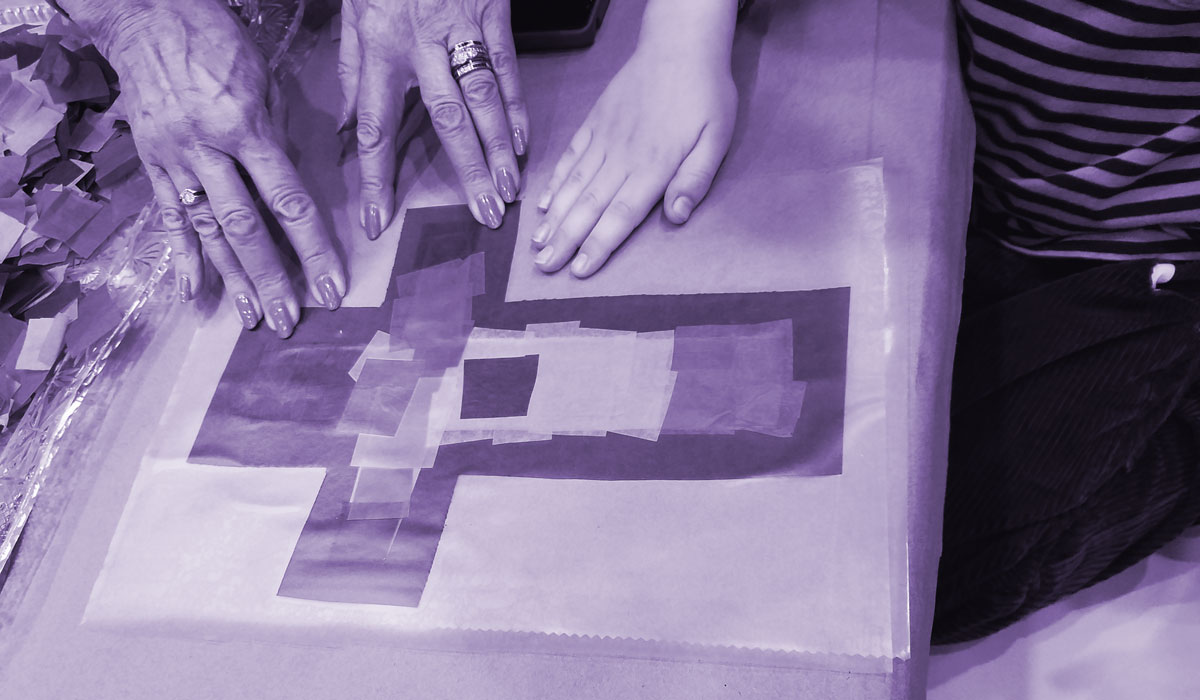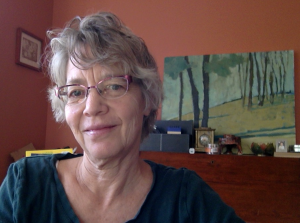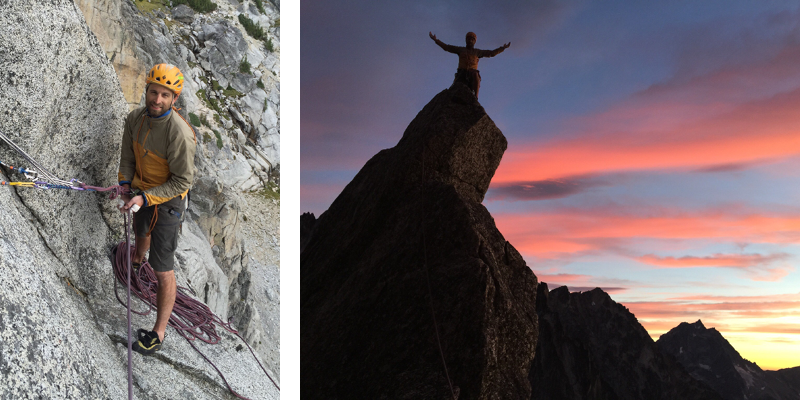Psalm 51 and Luke 19:1-10
Youth Sunday
March 18, 2018
Jump to audio
On Youth Sunday the youth of the church lead our services of worship, including preaching the sermon. Our youth preachers are Emily Yeh, Christian Martin, and Sarah Tel.
Emily Yeh
Ten verses. That’s all we get. We learn a little about Zacchaeus — he was short, he was a tax collector — and we make assumptions based on previous rich men Jesus has encountered. But then Jesus recognizes him, and Zacchaeus shows the exact opposite behavior than what we’ve come to expect from the rich men of the time. A complete paradigm shift of character.
The technical definition of paradigm shift is a fundamental change in approach or underlying assumption; how a new piece of information affects your perception. I have one every time I turn on a news channel and hear the next ridiculous thing coming from the political theater, you may have had one when you realized your child or grandchild who you swear was a baby yesterday is leaving for college this summer.
I assume the citizens of Jericho had a pretty big paradigm shift when Zacchaeus offers half his wealth to the poor and says he will repay over-taxed people four times over. None of the citizens of Jericho were expecting that. That’s why Jesus came to Zacchaeus, to give him a chance to be saved.
Jesus knows Zacchaeus, just as God knows all of us. We were made by his hand in his image. There are no paradigm shifts with God. When Jesus sees Zacchaeus in the tree, he’s not just a short tax collector, Jesus sees a son of Abraham who is lost and seeks out Jesus to find his way. We can all get lost in our lives the way Zacchaeus had been. And Jesus will seek us out and offer us cleansing and salvation through him.
Zacchaeus seeks out Jesus by climbing up a tree, his own twist on the crowds that flock to see Jesus. It’s a funny image although I’m not really one to talk since I let Mark drag me up a mountain in British Columbia for the same purpose.
I was the youngest person on that Beyond trip, technically too young to go backpacking at Beyond but I wasn’t letting something as trivial as an age requirement stop me from getting away from my parents for a full two weeks.
As a rising sophomore at the time amid juniors, seniors, and graduates, I had barely peered into the abyss of the college searching that they were wading through. The long van rides were full of all nine other teenagers having intense discussions comparing the SAT to the ACT to the AP tests, and which schools were better for what programs; all of this flying completely over my head.
A few more days into the trip and up the mountain, the discussions had turned more theoretical: Where are you applying? What do you think your major will be? Are you going to double major? Are you going to minor in something? And so on.
To my surprise at the time, their answers to those questions were much more ambiguous than their previous debate had lead me to believe. Only one person had a concrete plan following high school graduation and it was to take a gap year to give himself enough time to figure out what he actually wanted.
It’s such a strange time in your life, this cusp of greatness, caught between childhood and adulthood. Asked to make important decisions that will shape our futures and fundamentally change who we are. Yet we are not quite old enough to be fully serious about our choices.
We are old enough to have opinions in “grown up” discussions like gun control, but we are young enough that we still get punished for demonstrating them. We are old enough to feel the pressures of image and attach our self-worth to how we are perceived, but we are young enough that any ensuing effects are just lunch room drama. We are old enough to see the cracks in our systems, but we are young enough to be hushed without alarm.
So get ready for your perceptions to be changed, because there has never been a better time for a generation to spread a message, to make a movement, and we will not go gently into this good fight.
Christian Martin
Todos somos peregrinos en esta tierra. Todos somos peregrinos en esta tierra. We are all pilgrims on this Earth. Looking back on our trek across Spain, those words, said by a priest originally from Burundi preaching in the Spanish city of Sarria, seemed to define our 270 kilometers pilgrimage to Santiago de Compostela this past August. I know I speak for myself, and probably many others, as we taped our bloody, oozing blisters, taking off hot boots, we asked ourselves, “why am I doing this?” Why between the early mornings, the crowded hostels with sometimes just a little too friendly Italians, there honestly seemed no logical reason, on paper as to why we would hike, along dusty roads, not usually particularly scenic, but just walking. The answer is, as the Father in Sarria said, that we are all pilgrims on this Earth. And sometimes we need to walk, with absolutely no reason to walk but to find one.
It doesn’t take long in the Spanish heat to be reminded that always and forever, our strength, our way forward comes from God alone.
And sometimes we forget that. We become dependent on our phones on our heating and lights as at least evidence to me during last week’s power outages. Sometimes its because of this dependency that we need to do away with all the illusions that distract us in order to see our true source of purpose. Because once we look up, look around us, we see Jesus, as Zacchaeus did in Luke chapter 19 when he climbed those trees. We saw Jesus in some of the most beautiful Spanish sunrises, and we saw him in the face of every determined pilgrim we passed, who without fail would every single time wish us the same blessing “Buen Camino.”
But now we’ve seen Jesus. And as he did to Zacchaeus , Jesus challenges us. But he doesn’t challenge us to get perfect SAT scores, or become captains of the football team, no he challenged Zacchaeus to donate half of all his belongings and dedicate his time in the service of God’s people. As the apathy in my generation has engendered inaction in the ruling generation, we take it upon ourselves, having seen Jesus, to rise to his challenge. We on the Camino were blessed. We were forced to truly look around us as we were surrounded by Jesus. But now that we are back in lives of stress and hecticness and distraction we cannot turn back. We must continue to look for Jesus in the faces of those who need our aid. Loving our neighbors.
We see too many of our fellow Americans needlessly gunned down every day. Because of that, we are praying. But we are not just praying. We are also writing letters, calling representatives, walking out, marching and doing everything we can to meet Jesus’ challenge. And though this is where the national dialogue currently is, we cannot and will not stop here. While too many of God’s children suffer, from oppressive regimes and oppressive hunger alike, we cannot stop here. While there are those of us in our community who seek to work and serve society, but are uncertain of their future status as residents, we will cannot stop here. And as we march, as I will be in Newark next Saturday, I will see the same determination in the faces of the patriots to my right and left as we did the pilgrims on the Camino de Santiago. We will see the determination of people who have seen Jesus, and now rise to meet his challenge. Because todos somos peregrinos en esta tierra. So go on a walk, then comeback and march, write, call or do anything you can, like Zaccheus did, in the service of God’s people. After all, we all are pilgrims on this Earth together.
Sarah Tel
My friend was hurting. She was angry at me. And maybe she had a right to be. When she walked away her pain was obvious—you could read it on her face. So I reached out to her with a text message: “How are you?” And the reply—the only obvious right answer—“I’m fine.” The words kept flashing on the screen of my phone: I’m fine. I’m fine. I’m fine. It’s the American way. I ask you how you’re doing and I already anticipate your answer: you’re fine. I’m fine. We’re all fine. Everyone has experienced times when they were forced to put a smile on their face. I remember during college interviews my face started to hurt and twitch from smiling too much. We believe that the best way to be accepted is with a bubbly personality, a perfect smile, and a seemingly put together life.
The writer of Psalm 51 must have missed the memo. God wants to know, “how are you?” The psalmist answers honestly—“I am NOT fine.” Have mercy on me! I am NOT fine—cleanse me from my sin—I am NOT fine—I have done evil—I am NOT fine—teach me, purge me, wash me—I am NOT fine.
According to Psalm 51, God delights in truth in the inward being. And yet we are tempted to bring our fake emotions to God. “I’m fine. I’m OK. It’s all good.” Well, if it’s not, God knows, and there is no fooling God. God wants us to come clean, to be honest. To get rid of our fake smiles.
I recently happened upon a snarky Instagram post that asked a question: “Does anyone else smile at old people to show them that you are one of the good ones?” I think the psalms ask us the same question: Are you one of those people who smiles at God so that God might think that you are one of the “good ones?” “I’m good, God, really.” Well, God knows better, and our relationship with God will also be better if we speak honestly with God, and confess, “I’m not a good one. Behold, I was brought forth in iniquity. Have mercy on me, O God, according to your steadfast love, according to your abundant mercy.” Now we are getting somewhere.
Last month seventeen kids were shot down at the Marjory Stoneman Douglas High School in Parkland, Florida. Again we heard the whispers—it’s fine, we don’t really need to do anything, “our thoughts and prayers are with you,” you’re fine, we’re all fine. But this sentimental expression does not cut it. Somebody needs to shout, this is not fine, we are not fine. We are hurting. We are angry. Don’t pretend to go to God whole. The psalm says of God, “Behold, you delight in truth in the inward being.”
In Princeton we live in a bubble. We seclude ourselves into an area where everything is fine. It can sometimes trick us into believing that everything is fine. Through the youth programs here I started going on the ASP trips (Appalachia Service Project). These trips opened my eyes to see the systemic poverty in some parts of Appalachia, showing us that something is broken. The trip brought us face to face with this problem. This has been a gift to us as young people in a community where we are able to realize we have sequestered ourselves in a world where everything is seemingly fine. We turn our face away from places of brokenness because we are scared of being vulnerable, scared of the possibility of our bubble bursting. ASP has brought us face to face with the pain and resilience of impoverished people. Like Zacchaeus, we need to be able to see. The bubble of our privilege, our sentiments of “we’re fine” can get in the way. We need to see. We need to know. We need to be able to say to God and to one another. “I’m not OK. Have mercy.”
The psalm mentions hyssop. “Purge me with hyssop, and I shall be clean.” Hyssop is a small bush plant with bitter minty leaves which was used for purification. It’s ironic that it’s the bitter stuff that helps us feel better. I guess back then they did not have the grape-flavored Tylenol syrup to artificially disguise the medicine. Sometimes the reality of life really hurts and is hard to confront. We hope that if we tell each other “we are not sick, we are not broken” we might trick ourselves into believing it. But like the grape-flavored Tylenol, it is artificial, fake, a disguise. We cannot implement change or have our sins purged unless we acknowledge the parts of us that are dirty, bitter, and are not fine. We are scared that God will not accept us if we go to him broken.
God knows we are dirty and broken. God fixes those who come to him broken.
Zacchaeus was a sinner and a dirty man. Yet the Greek word for Zacchaeus literally means pure, clean. The crowds protest because Jesus is eating with a sinner–Jesus comes face to face with the unclean. Everyone else claims that they are pure, that they are clean. They say to Jesus, “we are fine.” But it is the sinner who comes to Jesus and says, “I’m not fine,” he is the one called pure. He has been purged with hyssop. The psalmist prays: “Create in me a clean heart, … restore to me the joy of your salvation.” And Jesus shouts to the grumbling crowd from the doorway of Zacchaeus’ house: “Today salvation has come to this house.”
Don’t pretend to go to God whole. Go to him broken so that he can fix you. Don’t pretend to go to God clean. Show God your dirt so he can clean you and make you pure. Everything is not fine, and that’s a good place to start.
© 2018 Nassau Presbyterian Church
Contact the church to obtain reprint permission.



